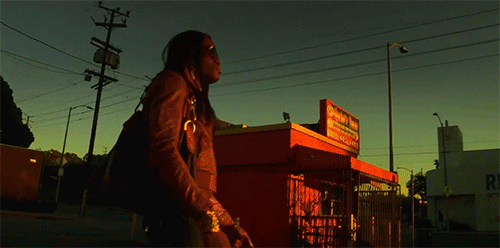Undergraduate - Fall - 2020
Cinematic Cities

Details
Description
Cinematic histories are married to the city. Indeed, an important field of scholarship has been dedicated to unpacking this deep relationship through the lens of so-called cinematic cities. These cities are urban environments that have experienced the most obvious and profound influences of cinema: behind the screen and on screen.
In this class, we will revisit classic cinematic cities with questions informed by contemporary media practices and queer perspectives that shift our idea of “the city” from the center into urban peripheries.
· Many of us feel a familiarity with cities like Tokyo or Paris, even if we have never set foot there. Can the way that we experience cities today be disentangled from the urban imaginaries we consume and construct through film, television, games, advertisements, news and social media?
· When we close our eyes and think of a city we might imagine the landmarks and commercial spaces that feature prominently in Hollywood versions of a city. But how can cinema also work to unsettle and queer normative perspectives on the city?
· Finding an affordable place to rent in Oakland and London has become nearly impossible as property values are inflated in large part due to a booming media-tech industry and sprawling gentrification. How do the ways that we consume and construct media connect to current industrial, economic, social and political changes that are radically reshaping urban space?
Each week, our class will approach a different cinematic city using this set of questions. To do this we will watch, discuss and write about films and media that are transforming our ideas about cities today. Students will curate weekly media salons where everyone will be expected to contribute content and take a turn to lead class discussion.
We will also watch and discuss one film each week that intervenes in or disrupts cinematic conventions and ongoing debates related to that city. Readings and assignments will help to advance critical thinking, research and writing related to the themes and films in this course. Required readings will be made available on GauchoSpace.
